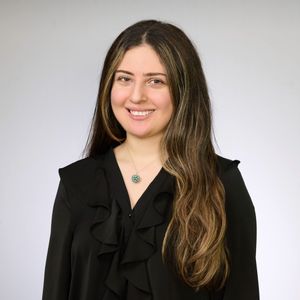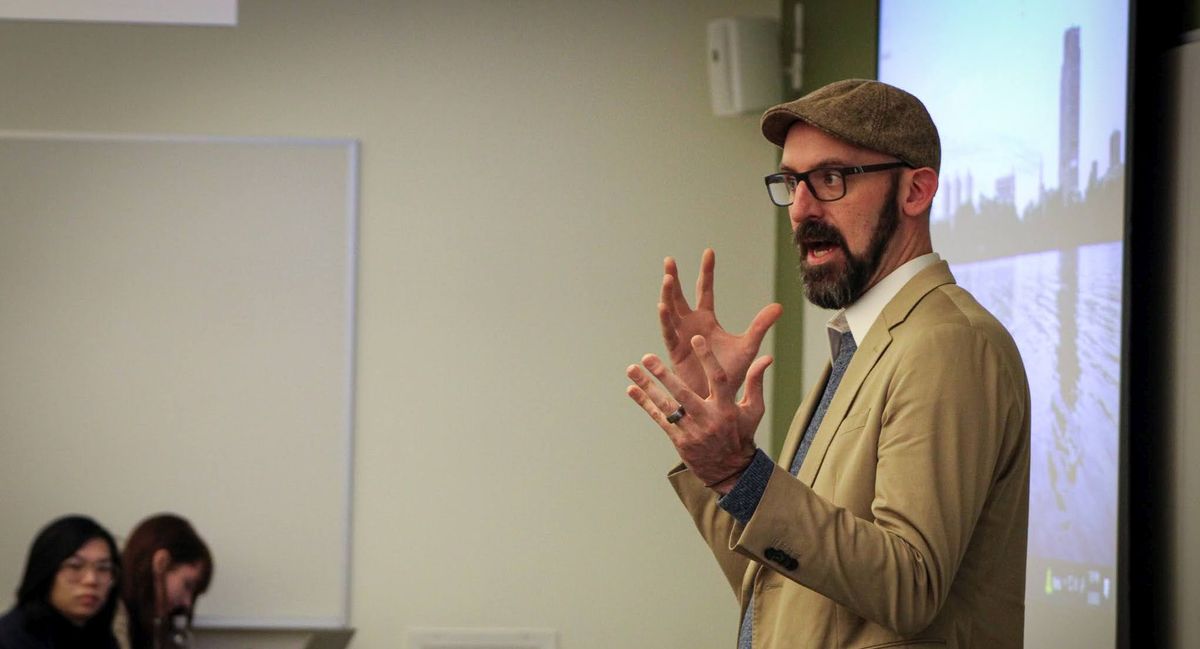Earn a Master’s in Teaching Science and Inspire Young Innovators
Take your love of science into the classroom. Earn your masters in teaching science in as little as one year. The MAT in Science Education will prepare you as an effective science educator through coursework and field-based experiences, with specializations in biology, chemistry, general science, or physics. This masters in teaching science is designed for students who have completed an undergraduate major in the science content area for which they seek initial teaching licensure.
Program Details
Master’s of Teaching Science with Licensure
Our master’s in secondary science education emphasizes classroom practice and is designed to prepare you for work as a licensed classroom teacher. Successful MAT candidates will earn endorsement for Massachusetts initial licensure in biology, chemistry, or physics for grades 8–12, or general science for grades 5–8.
Gain Meaningful Field Experience
Students in the MAT in Science Education program are placed in science teaching field experiences every semester to accompany coursework. You’ll assume increasing responsibilities in each field experience, culminating in a full student teaching practicum during the final semester.
Specialization Options
As a student in the master’s in secondary science education, you can choose to specialize in biology, chemistry, or physics for grades 8–12, or general science for grades 5–8.
TESOL Add-On Licensure
The TESOL (Teaching English to Speakers of Other Languages) program offers a six-course, 26-unit add-on license pathway that allows MAT in Science Education students to meet requirements for an initial license in English as a Second Language (ESL) (5–12) in Massachusetts. Licensure-seeking students complete an ESL practicum.
Career Outcomes for a Masters in Teaching Science
Graduates of Boston University’s MAT Science Education program are culturally responsive leaders in science education. Upon completion of this masters in secondary science education, you’ll be skilled in:
- Curriculum, planning, and assessment
- Teaching students with a diverse range of needs and backgrounds
- Building effective partnerships with families, caregivers, community members, and organizations
- Subject matter knowledge
Alumni in MAT in Science Education
Alumni of this masters in secondary science education find jobs as:
- Elementary, middle, or high school teacher
- Curriculum developer
- Formal or informal science educator
Featured Faculty
The faculty for BU Wheelock’s master’s in science education represent broad experiences in the field. They have expertise in a range of areas, including curriculum development, designing learning environments, and supporting pre- and in-service teachers.
-

Ellen E. Faszewski
Associate Dean, Student Affairs
Clinical Professor -

Peter Garik
Program Director, Science Education
Clinical Associate Professor -

Ihsan Ghazal
Lecturer
-

Eve Manz
Associate Professor
-

Thomas J. McKenna
Director, Center for STEM Professional Learning at Scale
Associate Director of Educator Engagement and Impact, AI & Education Institute
Clinical Assistant Professor
Affiliated faculty from Boston University’s College of Arts & Sciences
Andrew Duffy, Master Lecturer, Physics
Binyomin Abrams, Research Associate Professor, Chemistry
Kathryn Spilios, Master Lecturer, Biology
Manher Jariwala, Master Lecturer, Physics

Learn from faculty in the masters in teaching science program like Dr. Eve Manz, who, with support from a National Science Foundation CAREER grant, works with teachers and district partners in Somerville Public Schools to develop new approaches to the elementary school science investigation.
Master’s in Teaching Science Courses
The MAT Science Education program prepares you to advance the foundations of scientific literacy and scientific ways of thinking through leadership in pedagogy that is accessible to all and advanced content knowledge.
Courses in the master’s in secondary science education include:
- Classroom and Behavior Management
- Science Teaching Methods
- Teaching in the Science Disciplines 5–12
- Science Teaching Pre-practicum
Scholarships Available
Don’t let funding keep you from starting your master’s in teaching mathematics. Merit and need-based scholarships are available to graduate students, as well as federal and state grants, making your degree more affordable.
Robert Noyce Scholarship
Students in the MAT Science Education program are eligible for the full-tuition Robert Noyce Scholarship. Applicants must have a science background and be preparing to be biology, chemistry, physics, or middle school science teachers. In return for the Noyce Scholarships, graduates make the commitment to teach for two years in schools in districts designated as high-need.
Admissions & Dates
Spring & Fall 2026
Aug 15, 2025
Application Opens
Spring 2026 Semester
Dec 15, 2025
Application Deadline
Fall 2026 Semester
Jan 15, 2026
Deadline to Receive Priority Scholarship Consideration
Fall 2026 Semester
Aug 1, 2026
Application Closes
Connect with BU Wheelock to learn more about the master’s in secondary science education. Learn about application requirements and deadlines, sign up for an information session, or start your application today.
Licensing Disclosure
BU Wheelock Educator Preparation Programs Licensing Disclosure provides information about BU Wheelock state-approved programs and how the educational requirements compare with those in other states. Education students in licensure programs should review this resource and contact edlic@bu.edu with questions.
Background Checks
Students who are admitted into BU Wheelock routinely participate in field experiences as a part of their respective program curriculum and requirements. Most field sites require criminal background checks to determine students’ eligibility for participation. History of a criminal background may disqualify students from participating in these required experiences, which in turn may impede the successful completion of one’s degree program.
